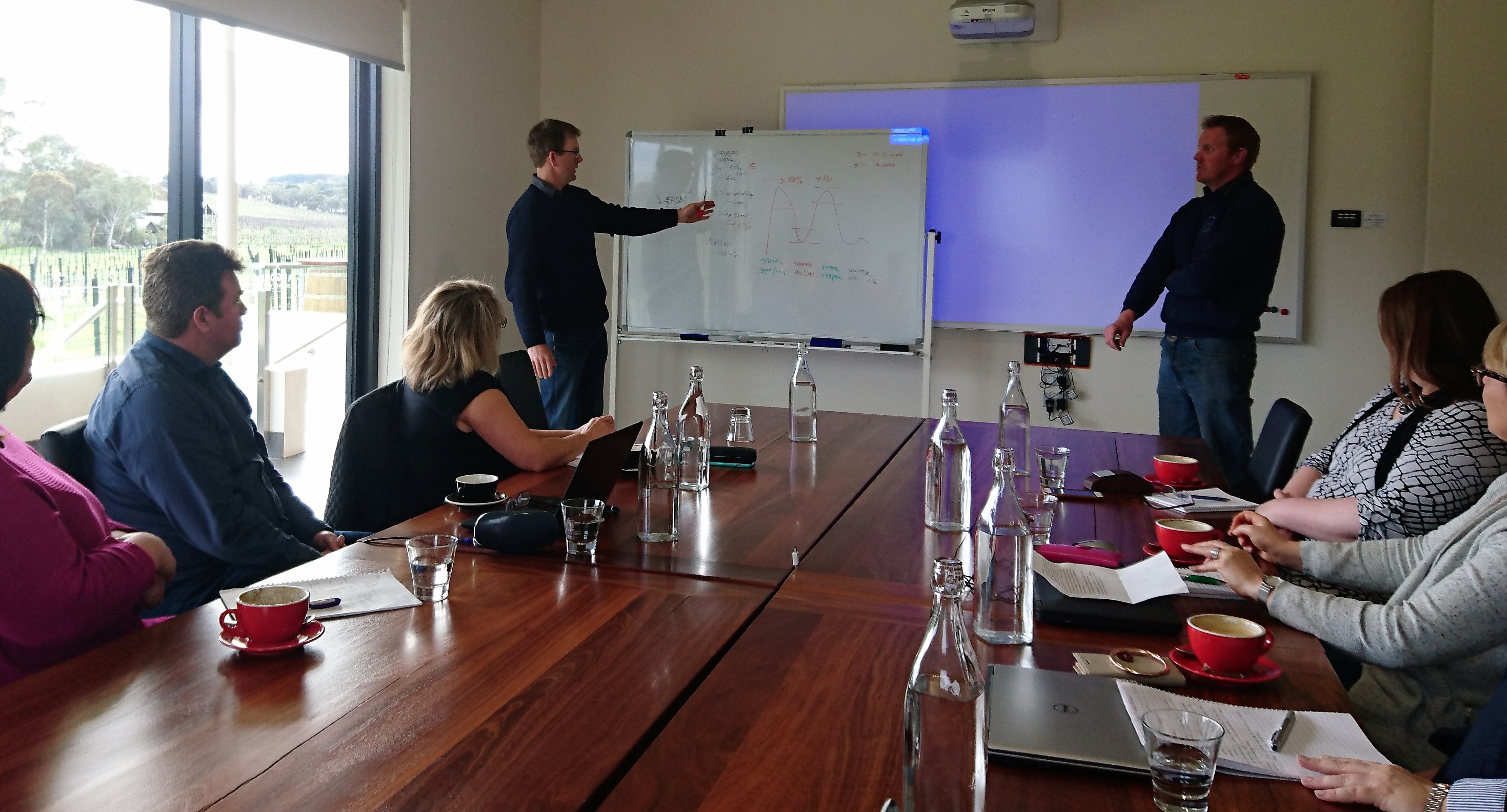In my three years working at Flinders and the seven years before that doing consulting work across a whole bunch of other unis, it has struck me that the Higher Ed sector isn’t always brilliant at ‘looking outwards’. I’ve been guilty of it myself on many occasions – in the face of a problem, the first point of call is often to reach out to my counterparts in other Unis and ask how they’ve tackled a similar situation.
Not that this is all bad, in fact it makes perfect sense in a lot of cases to avoid reinventing the wheel. Where it falls down is the potential for having the same sets of eyes with the same knowledge and experience finding the same solution for a similar problem, leading to ‘institutional isomorphism’, i.e. every organisation ending up looking the same in how they operate (Simon Marginson talks about this at a more organisational level in some of his papers like this one, but it applies just as well on a smaller scale I think).
With this in mind, I took the leadership group out this morning to a vineyard, and spent some time talking with Richard Leask and Scott Binns from Leask Agri, a primary production and agricultural management business based in one of Australia’s premier wine production regions just down the road from our Bedford Park campus.
Why choose agribusiness as a good parallel for the challenges we face in a University student services context? Having had friends in the industry for most of my life, several similarities struck me as I looked from a distance:
- A well known, annual cycle;
- Massive peaks in activity interspersed by a couple of quiet times when planning for the next peak is critical;
- The need for a staffing mix that can cope with these peaks and troughs, along with all the challenges that brings;
- Elements of unpredictability (most notably the weather) which can have a big impact on operations;
- High levels of alcohol consumption…
Ok, the last one might not be true in all cases, but the rest seemed like strong similarities between the two contexts, and so I thought it was worth the risk to get the leadership team her together with these two agribusiness leaders to see where the conversation went.
The outcome? A 75 minute interactive overview of managing the grape production cycle and all the challenges that come with it, and that could have gone on for twice that long if we’d had the time.
I jotted down a few quotes throughout the day that resonated particularly strongly as being relevant leadership points for our team, me included.
‘Because there is so much going on, you’re never on top of it’ – in a world where there is perpetually more work than there are resources to do it, then as leaders we need to be comfortable with some level of chaos. Odds are we’ll never, ever get to every last thing on our to-do list, and we need to learn to be ok with that if we’re going to survive.
‘The only real way to (know) it, is to see it out in the field’ – a comment on the value of on-the-job learning in a workforce that changes size according to the time of the year. For us, this means in investing in training and learning opportunities for staff during the quieter times in the lead up to peaks, and making sure that we get people ‘out in the field’ to develop their skills rather than relying purely on training sessions.
‘Until it’s in the winery, no-one sleeps well’ – a comment on never declaring victory too early. Until the job is done completely then there is still the risk of something going off the rails. There is a time for celebration, but it doesn’t happen until the whole process is complete.
‘It’s all about information – we’re going to wear our staff out if we don’t make some changes’ – an extremely relevant point about consciously looking to reduce complexity and focus on high-value activity. When a service’s complexity to deliver outweighs the benefits it’s bringing in, then it is time to look at retiring it, and to understand this we need to have access to the right data to help us make these decisions. The question of what work we stop doing is just as important to address as the question of what work we keep doing.
‘If you’re not enjoying vintage, then you probably shouldn’t be in viticulture’ – a comment on what it takes to be in viticulture, which is highly relevant for a student services context. Each role comes with its highs and lows, its peaks and troughs, but at the end of the day that’s the environment, and it won’t change for you – that’s just the nature of the beast.
There were plenty of other things I could have picked up on, and there were plenty of times that the knowing nods and smiles going around the room were a good sign that the challenges faced by Leask Agri and the ways of managing them were hitting a chord. The chatter after the session at morning tea backed this up. I look forward to reflecting back on this session with the team as we move towards our first real ‘vintage’ early next year and continue to evolve and mature in the years ahead.
The moral of the story? Look outside your industry. Find a good parallel. Start a conversation. Listen. Learn. Grow.
Special thanks to Richard and Scott for volunteering their valuable time to this experiment, we hope you enjoyed it as much as we did.
